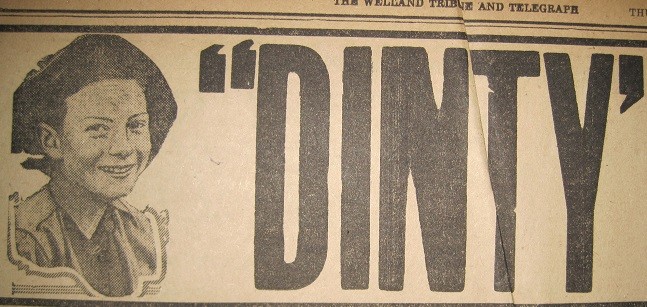THEATRE NEWS – FROM NEWSBOY TO SCREEN STAR
Quick Rise from Corner Newsvendor
to Role of Film Favorite, Thomas
A. Edison, Charles Schwab,
David Belasco and Several Governors Started as Newsboys
[The Welland Tribune and Telegraph, 10 March 1921]
From whom did you buy this morning’s paper or this evening’s “latest edition?”
Was it from Thomas A. Edison, or was Charles Schwab the lusty-lunged youngster that reached you first for your pennies? Perhaps it was David Warfield and he wanted to sell you some matches too, or possible Marse Henry Watterson negotiated for your small change.
For all these great men began their life’s work at the street corners of their several towns, bawling “Extra!” into the ears of the passers-by. And the others: Harrison Grey Otis was a newsboy; ex-Governor Bradley of Alaska and David Belasco and Arthur Capper, Governor of Kansas, and doubtless hundreds of other notables in the life, industry and art of the United States.
When Marshall Neilan sought in his mind for a hero for his next great picture, he figured that a member of the hustling, bustling profession of newspaper merchants would be about the right thing, and the more he came to know of Dinty-that’s the name of his juvenile hero-the more he came to love, and respect him, and the gladder he was that he made him a newsboy, since from that lowly walk of life have struggled upward into fame so many of the nation’s best, biggest and most helpful of men. Next to being born in a log cabin, it is wisest to become a newsboy for of them are fortune’s chosen men.
In the latest Marshall Neilan release through First National, “Dinty,” there will be seen by the observant some of the reasons why a newsboy has all other professions handicapped in the race for honor and fame. Dinty, the little hero gets his education on the street; his books are the people he encounters; his instructors in the university of life are the experiences of the day, and his hours of study are from morning when the street lights are turned off ‘till night when they are lit again.
In that hard schooling the principle of “the survival of the fittest” gets its freest play. A stout heart isn’t all that a lad needs, tieher. He has to have a good left and a ready right. Later in life he may have to buck the bulls on a rising market, but it won’t frighten the heart that failed, when a bully invaded his corner and stole his trade away.
He will later have need for fortitude and grit to weather some of life’s alluring temptations, but this won’t be so much of a trick since, as a news urchin, he has seen a lot of the seams in the life called “gay.” The cop on the corner gets to like him, and cops know a lot of valuable things for a boy to learn and ponder upon. Dinty may never have the chance to hear the preacher discourse on the text, “The wages of sin is death,” but he’ll pick up a lot of loose information around the street, tending to substantiate that very important fact, and if he has the grit to learn, he’ll have the wit to remember.
Through such a career is Dinty passing-a million Dintys-and Marshall Neilan reveals this particular sample of a Dinty in the midst of as thrilling a set of circumstances as it is possible for a newsboy to encounter and triumph over. All the shrewdness of the keenest minded youth is required by Dinty to fight his way through to success and to solve the mystery which in the Neilan story baffles the larger but more ponderous minds of the police.
Dinty is a credit to the progression from whence arose Edison, Warfield, Schwab, Childs, Belasco and the rest of those notables whose early life was given to the pursuit of pennies and curb-stone customers. And Dinty is played by Wesley Barry, who visualizes the 100 per cent kid that may come to be anybody his American majesty takes the pains to be, from a Schwab to a President.
“Dinty” will be the attraction at Griffin’s Theatre today, Friday and Saturday.
 Subscribe..
Subscribe..

Add A Comment
You must be logged in to post a comment.